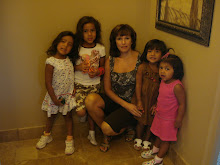.jpg)
We tend to assume that life will give us another chance tomorrow at whatever came up yesterday and today. But if we really pay attention, we see that no single day is like another. Every morning brings a hidden blessing that serves only for that day and cannot be saved or used again. If we don’t use today’s gift today, it will be lost.
This gift is in the little everyday things. If we experience every minute intensely, in such minutes we can find the solution to a problem, the person we are looking for or the path to a decision that will change our whole future. But how can we find the courage to live this way? I think God talks to us through signs, which are a special language we can learn only through belief and discipline.
Augustine was converted that way. For years he examined various philosophical movements, looking for an answer to the meaning of life. Then one afternoon in his backyard in Milan, deep in thought about the failure of his quest, he heard a child singing, “Pick it up and read! Pick it up and read!” Although he had always allowed logic to be his guide, on impulse he decided to open up the first book within reach. It was the Bible, and he read a passage from Paul that contained the answers he was seeking. From that day on, Augustine expanded his search, making room for belief, and became one of the church’s greatest theological
document.
The monks in the desert, who always said that you have to allow the angels to do their work, occasionally did preposterous things, like talking to flowers or laughing for no reason. The alchemists followed the “signs of God,” paths that often appear to be dead ends but [that] ultimately lead somewhere. “Modern people want to banish all doubts and uncertainties from life,” said the dean of the Cathedral of San Francisco. “In the end, their souls die of hunger because mysteries are food for the soul.”
There is a meditation exercise that entails explaining every action for ten minutes each day. For example, you might say, “I am reading the newspaper because I want to be informed. I am thinking of certain people because a particular subject I just read about made me think of them. I am walking to the door because I am leaving the house.” And so on. Buddha calls this “conscious attention.” If we catch ourselves repeating the most mundane, routine actions, we become aware of the wealth of detail that fills our life. We then understand every step and every posture. We discover important things and useless thoughts.
If we have the discipline to do this for a week, we become more conscious of our flaws and absent-mindedness. But we also see that at certain moments we do what we do for no reason at all and instead are following our intuition. We then begin to understand the silent language that God uses to point us in the right direction. We can call it intuition, a sign, instinct or coincidence – the name is irrelevant. The important thing is that through conscious attention we realize that we are often led to the right decision, which gives us more faith and makes us stronger.







1 comment:
thanks for this post. lovely. and so true. coincidence is just another name for miracle, I have heard said before. I do not know this person Paulo -- checked out the link you sent us to. I will have to look into his work. Interesting story of St. Augustine.
Post a Comment